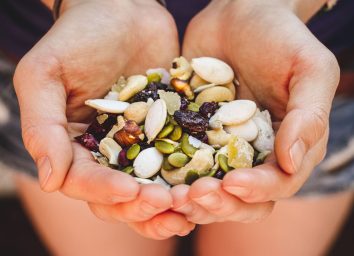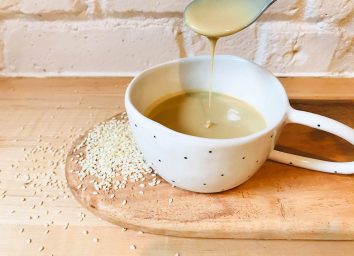What Happens to Your Body When You Eat Tahini
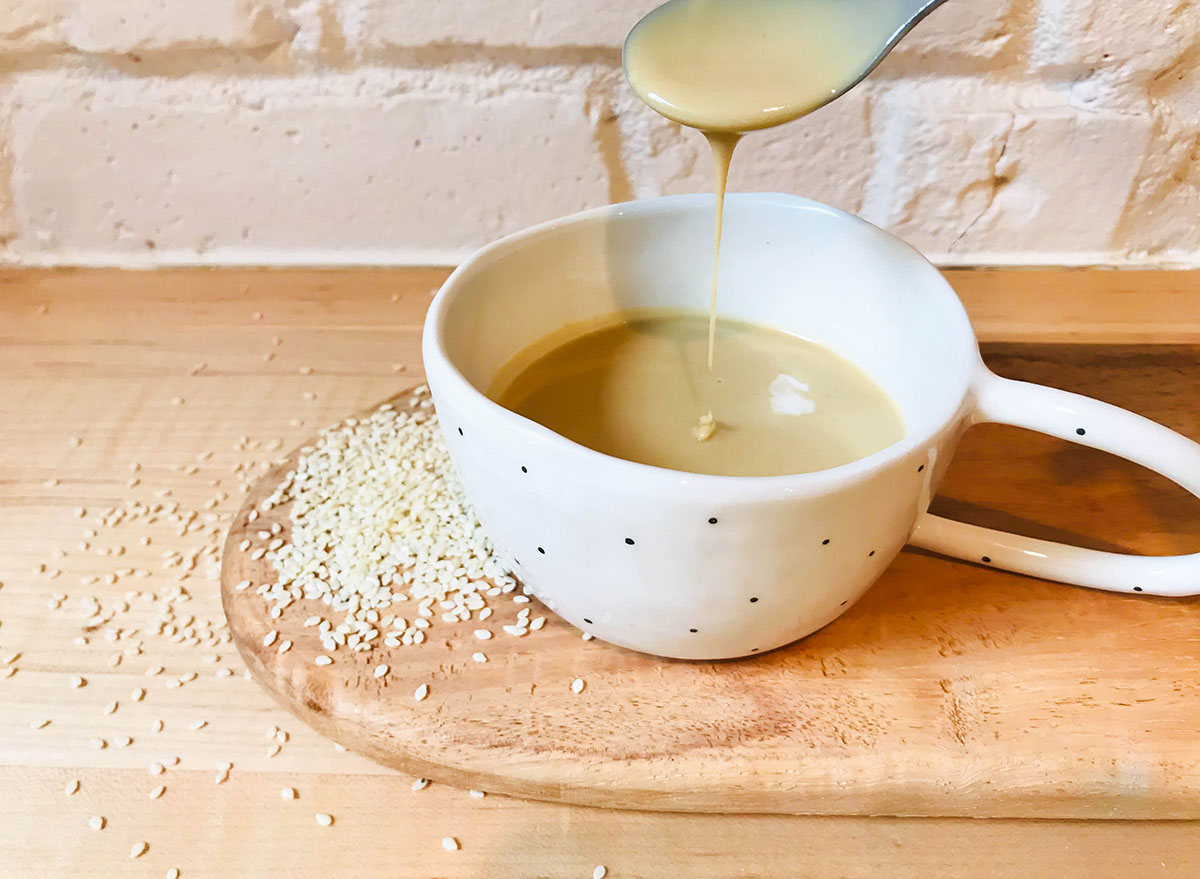
Have you ever had tahini, aka, the nutty paste made from ground sesame seeds? If you have yet to try the staple of Mediterranean cuisine, now is the time.
"Tahini is such an incredible, versatile ingredient. It has heart-healthy monounsaturated fats, B vitamins, and calcium," says Frances Largeman-Roth, RDN, nutrition expert and author of Smoothies & Juices: Prevention Healing Kitchen. "Plus, tahini can be used in both savory dishes, as it is in traditional Mediterranean foods, and also sweet ones—like banana bread."
Below, you'll see five positive things that could happen to your body when you eat tahini. And for even more healthy tips, be sure to check out our list of The 7 Healthiest Foods to Eat Right Now.
It may protect your kidney and liver.
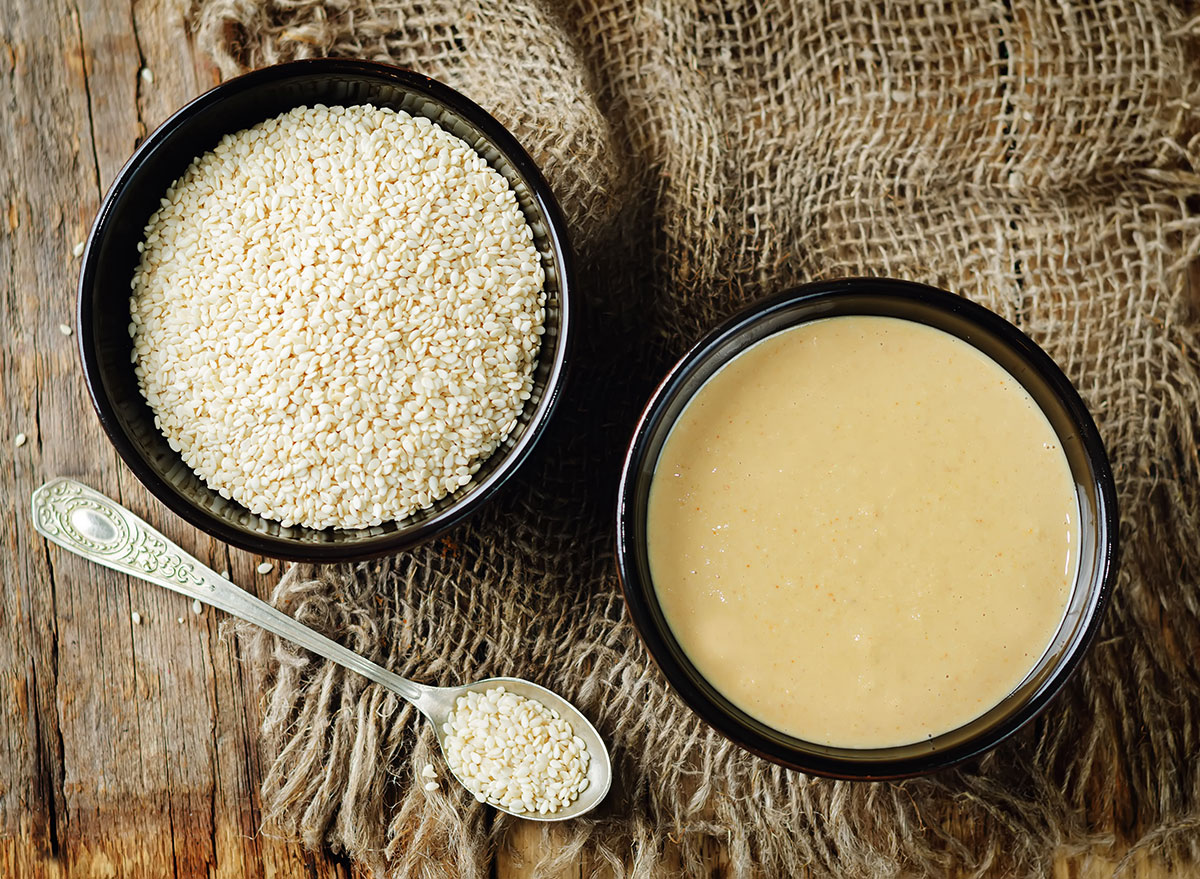
There are certain compounds in tahini that may help keep your liver and kidneys safe and the thing these two key organs share in common is that they both work to remove toxins and waste from the body. Both organs are key for everyone, however, it may be even more critical for those living with diabetes to make extra strides to promote good kidney and liver health. In short, if diabetes symptoms aren't properly managed, these organs can experience irreparable damage over time.
One small-scale 2018 study that followed 46 people with type 2 diabetes revealed that, after 90 days, those who consumed sesame oil had improved kidney and liver function compared to those who didn't.
It could support heart health.
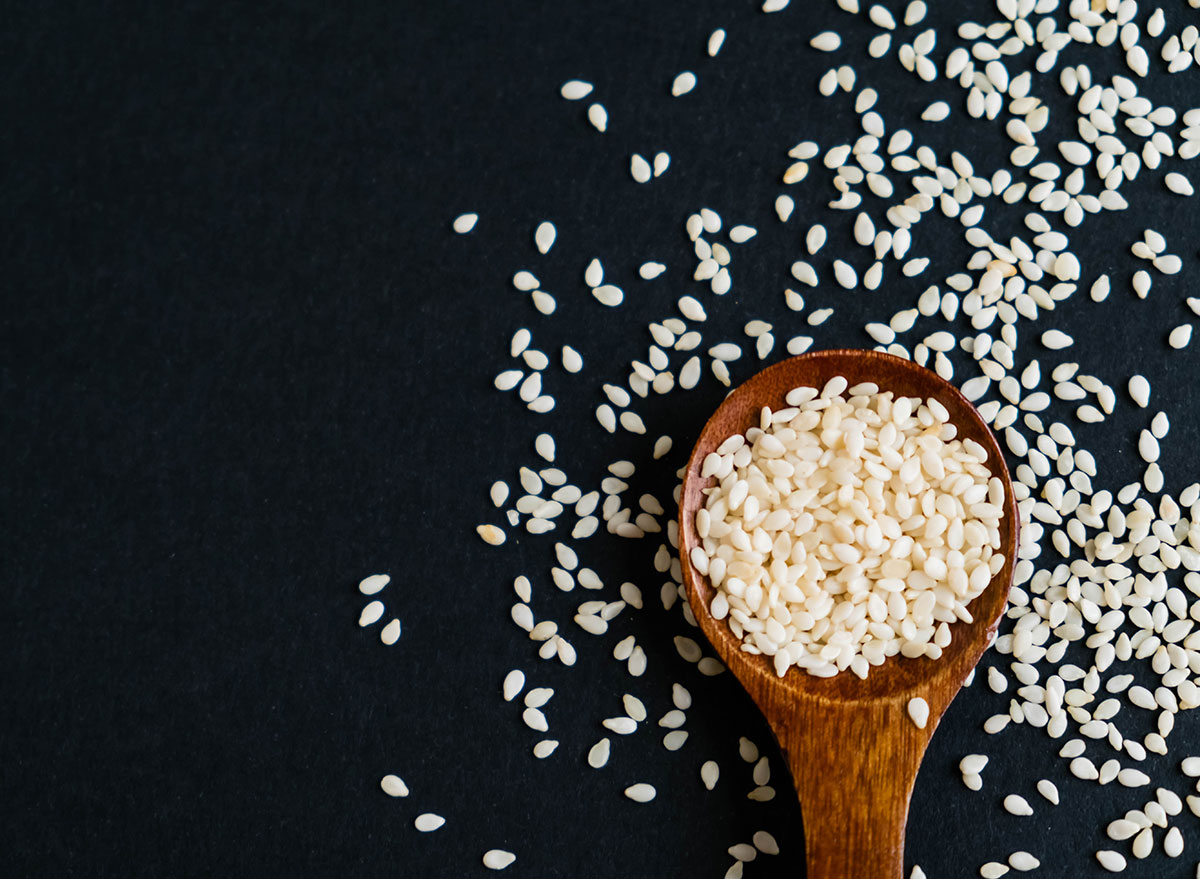
Did you know that sesame seeds are known to have anti-inflammatory effects on the body? They contain polyphenols (antioxidants) called lignans which help to protect your body from free radical damage and, in part, may also lower your risk of certain diseases—including heart disease.
"Sesame seeds contain some unique antioxidants which support cardiovascular health and fight inflammation," says Pamela Salzman, natural foods cooking instructor, holistic health counselor, and author of Quicker Than Quick.
Get even more healthy tips straight to your inbox by signing up for our newsletter.
It helps to keep you full.
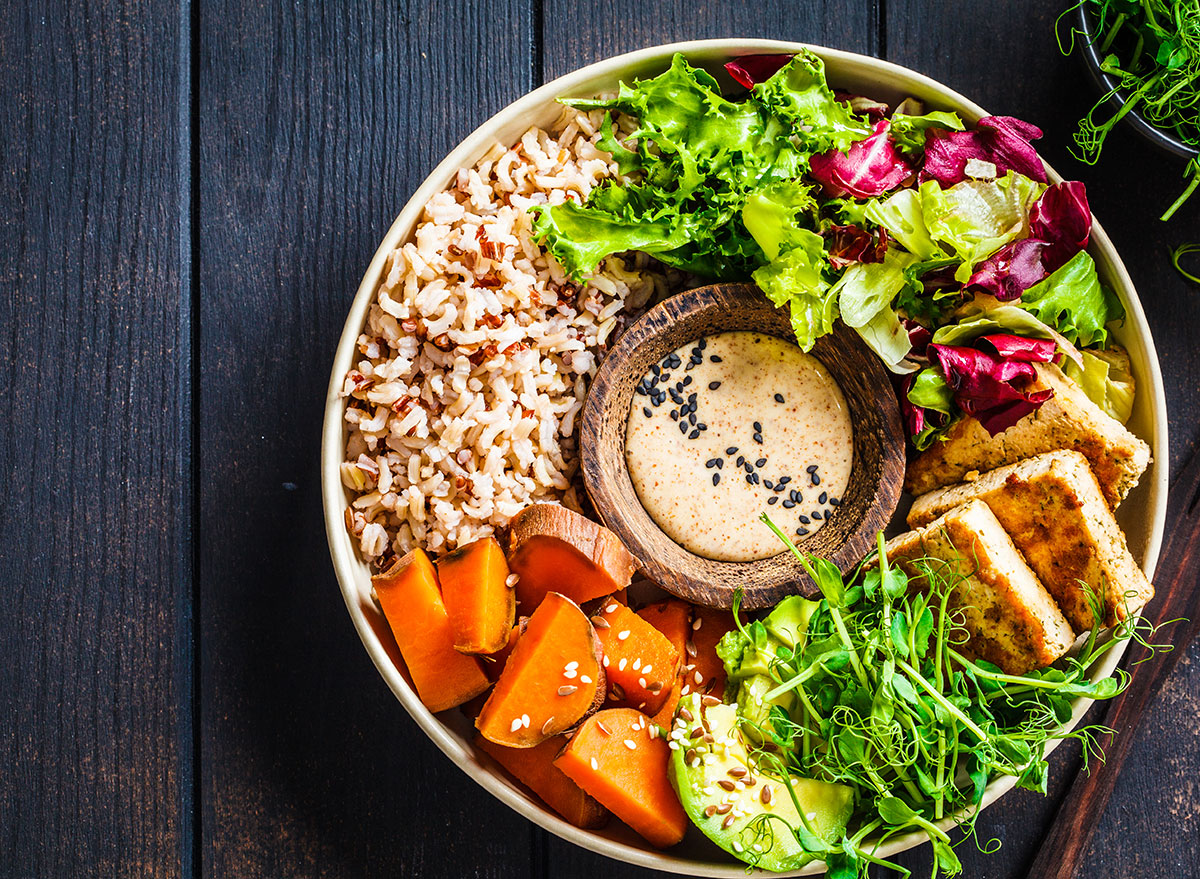
Especially when it's paired with brown rice, avocado, and sweet potatoes, this paste-turned dressing is sure to keep you full. On its own, tahini provides a good source of fiber, protein, and healthy fats—all of which allow you to feel satiated. Not to mention, tahini also makes a great substitution for other nut and seed-based butter.
"It's also great for people who can't eat nuts or peanuts because it provides a similar creamy texture and nutty flavor," says Largeman-Roth.
Whether you make it into a dressing or swipe it onto a piece of toast with sliced banana on top, you're sure to sit up from the dinner table feeling both energized and satisfied.
P.S. The Tahini Goddess even sells chocolate-flavored tahini. Dessert, anyone?
It may promote bone health.
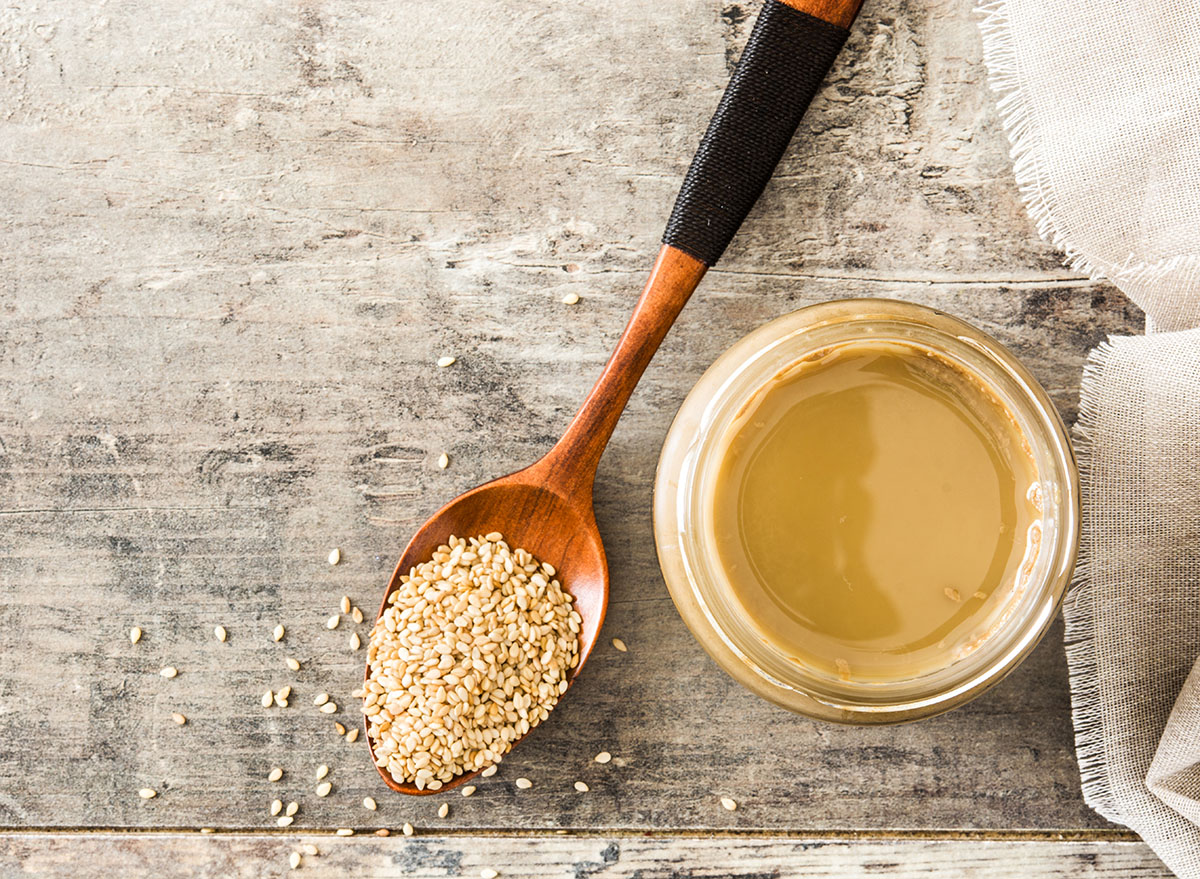
"Besides containing fiber, protein, and heart-healthy unsaturated fats, tahini is loaded with calcium which is important for building and maintaining strong bones," says Salzman.
Not to mention, tahini is also rich in both phosphorus and manganese, two minerals that play key roles in bone health.
It may help your body ward off cancer.
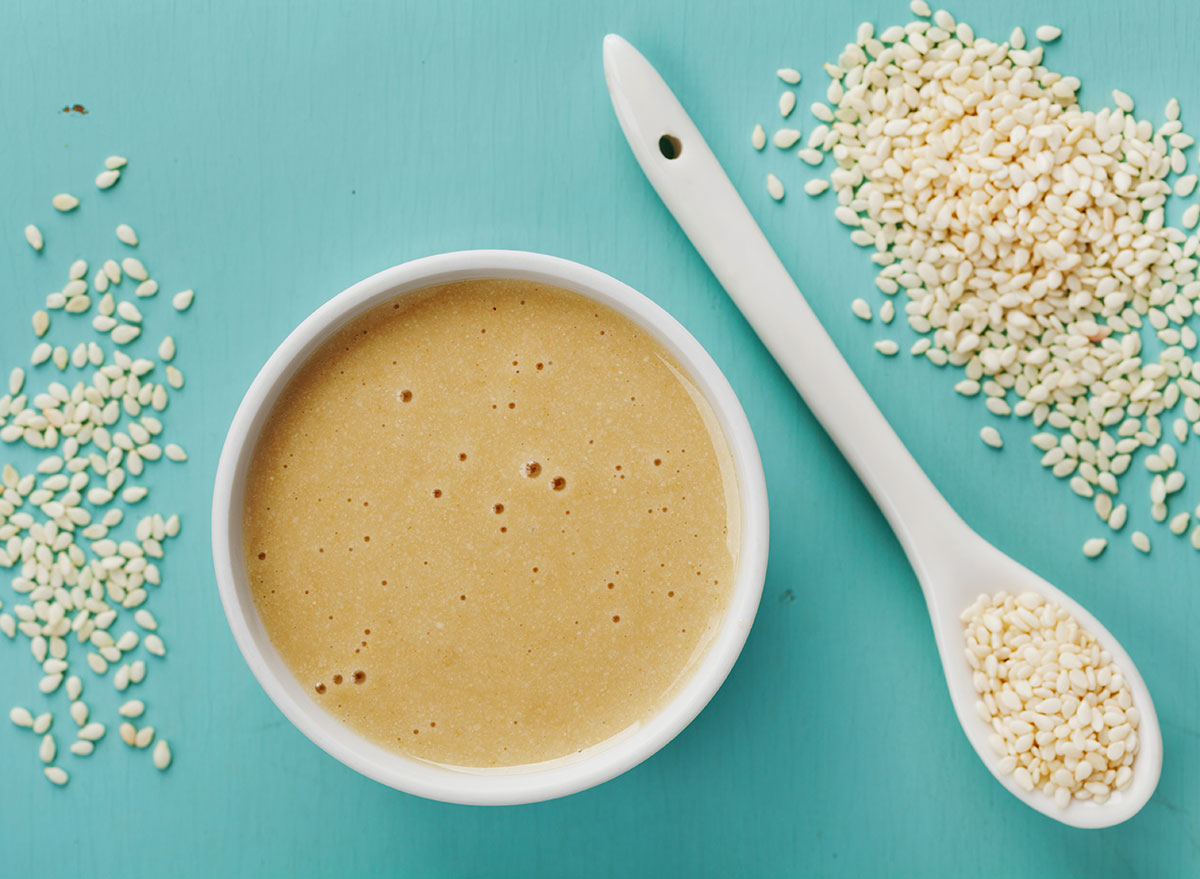
Chronic inflammation, over time, can alter DNA and as a result lead to cancer, per the National Cancer Institute. Research shows that two major antioxidants in sesame seeds called sesamin and sesamol have anti-cancer properties. More specifically, both antioxidants are believed to expedite the death of cancer cells in addition to slowing the rate of tumor growth.
For more ideas on how to cook with tahini, be sure to check out What Is Tahini? The Secret Health Benefits and How To Use It In Food.

